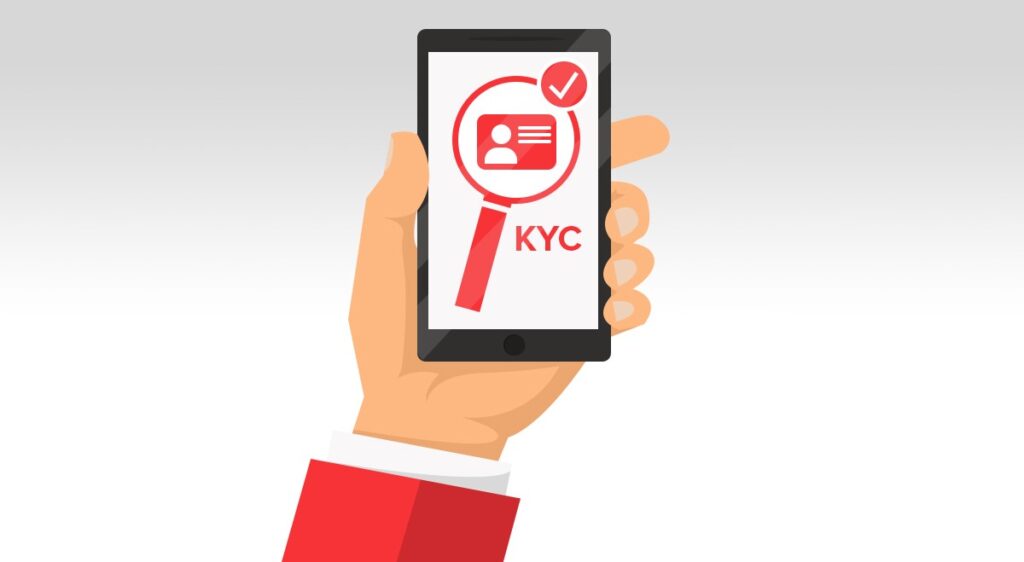
Client KYC Verification – The Ultimate Need to Minimize Digital Frauds
Last updated on June 23rd, 2022 at 04:24 am
Financial institutions and banks are the targets of perpetrators. Businesses that experience a lot of online fraud are those that are associated with financial dealings. Approximately 3 million individuals, which make about 1.25% of the total U.S population, stated that they faced financial theft in 2018. Considering the increased number of frauds, compliance professionals are making regulations to secure the integrity of businesses and the rights of users. An effective method of reducing theft linked with enterprises is by employing client KYC verification.
Due to the digitization of banks and related risks associated with the enterprise, lawmakers are now searching for efficient protocols to secure the companies from identity theft. With the non-stop advancement in technologies, client KYC verification is also stepping ahead towards upgrading.
Introducing Client KYC Verification
Know Your Customer regulations reflect the procedure of identifying the real identity of your customers. The method of verifying your customers is the requirement of merchants if they wish to stay in the market. Many nations are opting for this way of identification to secure their annual profits.
Money laundering is the biggest problem that financial institutes face nowadays. It happens when businesses do not monitor the transactions made by the customer. Enterprises having a weak loophole in the system, are easily get targeted by fraudsters. It is on the firm’s end to have stringent KYC compliance policies to eliminate money laundering thefts.
Role of Client KYC Verification in Anti-Money Laundering
KYC compliance with anti money laundering policy employed by the financial institutions can demoralize launderers in their illegal activities. Anti-money laundering is a part of know your customer, which focuses on transactions through transaction monitoring. Transaction monitoring is a process of regularly recording the transactions made by the user to forecast any irregular venture.
Verification Processes That Guarantee KYC Compliance
Compliance professional FATF (Financial Action Task Force) developed regulations like Anti-money Laundering and Know your Customer to minimize the scams related to companies. The identification of users is a crucial step for companies irrespective of their nature. Client KYC verification can be achieved through facial recognition and document attestation methods. It includes steps that are useful for both the retailers and their users. Let’s take face identification and see how the method of know your customer can be implemented to validate the end-users:
- The customer submits the image of any government-issued ID documents like ID cards, passports, driving licenses, at the time of enrollment
- The customer is then guided to the page that needs them to take a selfie and submit it on the web page
- The software then matches the image on a document against the one submitted by the user
- After verifying the user, the outcomes are presented to the client
Risks of Not Having Client KYC Verification In Banks
KYC is the procedure of identifying users at the time of enrollment and over regular intervals. Banks and other financial institutions that do not adhere to KYC regulations bring a lot of dangers in their reputations as follows:
1. Massive Fines
Regulatory bodies who make laws to prevent the ratio of scams occurring at this time do not bear any carelessness as per companies’ end if they do not adhere to client KYC verification. Identification methods secure companies from contaminating their reputation and secure the money of their users. Hence, businesses knowingly or unknowingly do not follow regulations, have to meet constitutional proceedings and pay heavy fines.
2. Money Laundering
The biggest threat linked with banks when they fail to adhere to proper laws is money laundering. A loophole in banks and financial institutions can make them face bad consequences. Financing of terrorist activities and money laundering are serious scams against humanity and financial institutions can bridge the gap by undergoing these activities while not having client KYC verification in place.
3. Consumer Loss
Who wishes to link with a name that is prominent for all the illegal means. Financial institutions and related banks, when they create news for being associated with all the wrong activities, face loss in consumer numbers. Companies themselves give their users to their competitors by not following the client KYC verification.
4. Reputational Loss
Being in the era of social media and you think people would leave any chance of using spicy news to make a big deal out of it, it is not possible. Social media and print media never leave any news that can bring them ratings without non-complying to client KYC verification. Financial institutions, when caught in any scam like money laundering, make news globally and get themselves poor reliability.
5. Limited Stocks
After showing themselves non-compliant to client KYC verification as a means to accomplish terrorist financing and money laundering, businesses experience a decline in income.
Cutting A Long Story Short
Through KYC form, tracking of any suspicious activity i.e, bribery, corruption, and identity theft has become possible for governments/businesses. Enterprises that are associated with funds comply with KYC anti-money laundering to overcome terrorist financing and money laundering.
Read Dive is a leading technology blog focusing on different domains like Blockchain, AI, Chatbot, Fintech, Health Tech, Software Development and Testing. For guest blogging, please feel free to contact at readdive@gmail.com.
